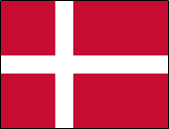Name of Resource | The Danish Financial Statements Act |
Type | Legislation |
Country / jurisdiction | Denmark |
Enacting authority | Government of Denmark |
Entry into force / date of approval | 1 January 2009 |
Description | Since 2009, the Financial Statements Act, cf. Section 99a, has required approximately 1,100 of the largest Danish companies and all state-owned limited liability companies to report on Corporate Social Responsibility (CSR) in their annual reports. The regulation was revised in 2015 to implement Directive 2014/95/EU as regards to disclosure of non-financial information by certain large undertakings and groups (the CSR Directive). Again in 2018, the Danish Parliament passed a bill ensuring that in the future the same companies must also explicitly state in their annual reports which measures they are taking on environmental, social and employee matters, respect for human rights, anti-corruption and bribery matters and to report if they do not have such measures in place. It must be stated for each policy area how the undertaking puts its CSR policy into practice, and any systems or procedures in this respect must be described. Details must also be given of the due diligence processes applied, if the undertaking uses such processes. The revised regulation includes a larger scope of companies than required after the directive because the requirements of the Danish Financial Statements Act section 99 a applies to large undertakings that are subject to the requirements in accounting class C, and to all undertakings that are subject to the requirements in accounting class D (i.e. to listed companies and to state-owned limited liability companies, irrespective of their size). |
Availability | DAN: https://www.retsinformation.dk/Forms/R0710.aspx?id=209390#ide22fd45a-cfda-4397-a673-d2f40ceb82af |
.
Name of Resource | Danish Act on a Mediation and Complaints-Handling Institution for Responsible Business Conduct |
Type | Legislation |
Country / jurisdiction | Denmark |
Enacting authority | Government of Denmark |
Entry into force / date of approval | 1 November 2012 |
Description | The Act mandates the establishment of the Danish Mediation and Complaints-Handling Institution for Responsible Business Conduct (NCP Denmark), the Danish OECD national contact point for responsible business conduct. NCP Denmark deals with cases against Danish companies relating to non-compliance of the OECD Guidelines for Multinational Enterprises, such as violations of human and labour rights in Danish companies and in their value chains. Furthermore, NCP Denmark raises awareness of what responsible business conduct entails. |
Availability | ENG: https://businessconduct.dk/file/298159/act-on-mediation.pdf |
.
Name of Resource | Danish National Action Plan – implementation of the UN Guiding Principles on Business and Human Rights |
Type | Policy |
Country / jurisdiction | Denmark |
Enacting authority | Government of Denmark |
Entry into force / date of approval | 2013 |
Description | The purpose of the National Action Plan on the implementation of the UN Guiding Principles on Business and Human Rights is to summarise the dedicated initiatives on business and human rights which have been taken by the Danish government since the UN endorsement of the Guiding Principles on Business and Human Rights. The intention of the document is to give a complete overview on the implementation of UN Guiding Principles on Business and Human Rights in Denmark. The initiatives in the Danish government’s Action Plan on Business and Human Rights are focused on preventing and mitigating adverse impacts on human rights by Danish companies at home and abroad. The supply chains topic is currently being discussed in regards to the Danish government’s expectation of companies. The government will provide effective guidance on how to respect human rights, utilizing the recommendations from the Council for CSR on the corporate responsibility to respect, overview the implementation of the state’s duty to protect. The Danish government also will employ the Counsel for CSR’s recommendations on the state duty to protect and promote human rights in commercial transactions. |
Availability | ENG: https://www.ohchr.org/Documents/Issues/Business/NationalPlans/Denmark_NationalPlanBHR.pdf |
.
Name of Resource | Managing the risk of hidden forced labour – a guide for companies and employers |
Type | Guidance on policy/legislation implementation |
Country / jurisdiction | Denmark |
Enacting authority | Danish Centre against Human Trafficking, National Board of Social Services |
Entry into force / date of approval | 2015 |
Description | The guide has been prepared in consultation with a number of different stakeholders and is intended to provide recommendations on as an awareness, business risk management and practical prevention tool. It includes checklists, which companies can apply to conduct risk assessment, risk management and prevention. The guide encourages self-regulation and action and provides measures which companies can apply in order to avoid unintentionally being associated with cases of hidden forced labour, which may result in serious reputational damage and police investigations. |
Availability |
.
Name of Resource | Avoid hidden forced labour – Guidelines for businesses and employers |
Type | Handbook/Tools for businesses and public procurement, Guidance on policy/legislation implementation |
Country / jurisdiction | Denmark |
Enacting authority | Danish Centre against Human Trafficking, National Board of Social Services |
Entry into force / date of approval | 2019 |
Description | This updated edition of the guide has been prepared in consultation with relevant stakeholders and partners, as well as with support from the Nordic Council of Ministers. The guidelines provide a concise handbook on managing the risk of forced labour in supply chains for private companies, employers and public organizations. The handbook has been designed as a practical tool with checklists. It encourages self-regulation and provides measures that companies can apply in order to avoid unintentionally being associated with cases of hidden forced labour, which may result in serious reputational damage and police investigations. |
Availability | ENG: : https://www.cmm.dk/test/portlets/tvangsarbejde-diverse-filer/2018avoidhidden-forced-labour-2013-guidelines-for-businesses-and-employers2019.pdf |
